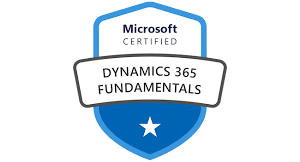Audience
A Dynamics 365 Finance and Operations Functional Consultant is responsible for performing discovery, capturing requirements, engaging subject matter experts and stakeholders, translating requirements, and configuring the solution and applications. The Functional Consultant implements a solution using out of the box capabilities, codeless extensibility, application and service integrations.
Skills Gained
After completing this course, students will be able to:
• Configure Dynamics 365 Supply Chain Management, Manufacturing
• Manage manufacturing processes
• Implement master planning for production
• Implement other manufacturing features
Course outline
Module 1: Configure Dynamics 365 Supply Chain Management, Manufacturing
This module will cover the address the different configurations the functional consultants will need implement the manufacturing features.
Lessons
• Configure and manage the production control module
• Configure and manage resources for production processes
• Configure discrete manufacturing
• Configure process manufacturing
• Configure lean manufacturing
After completing this module, students will be able to:
• Configure and manage the production control module
• Configure and manage resources for production processes
• Configure discrete manufacturing
• Configure process manufacturing
• Configure lean manufacturing
Module 2: Manage manufacturing processes
This module will help you understand and practice most of the transactions needed for the different manufacturing scenarios.
Lessons
• Manage production orders
• Manage batch orders
• Manage kanban orders
Lab : Case study 1A discrete manufacturing
• Exercise #1: Update the production control parameters
• Exercise #2: Create new production pools
• Exercise #3: Create and manage resources
• Exercise #4: Create an operation, assign relations and create a route
• Exercise #5: Create a simple BOM without a version
• Exercise #6: Create a BOM in the BOM designer (Bonus)
• Exercise #7: Create a BOM with a version
• Exercise #8: Create a production order
• Exercise #9: Start a discrete production order (Bonus)
• Exercise #10: Run a resource schedule
• Exercise #12: Configure costing policies
• Exercise #13: Configure manufacturing execution (Bonus)
• Exercise #14: Configure automatic route consumption on setup jobs (Bonus)
• Exercise #15: Use manufacturing execution (Bonus)
Lab : Case study 1B process manufacturing
• Exercise #1: Create an approved vendor list and setting method to Warning Only (Bonus)
• Exercise #2: Create items with different production types
• Exercise #3: Create and activate a formula using different product types
• Exercise #4: Create a new formula with a version from the released products form (Bonus)
• Exercise #5: Revise, update and activate a formula (Bonus)
• Exercise #6: Use the scalability feature to create a new formula
• Exercise #7: Create and activate a percentage-based formula (Bonus)
• Exercise #8: Change a linear consumption to a step-wise consumption
• Exercise #9: Set up commodity pricing (Bonus)
• Exercise #10: Change a price calculation and update trade agreements
• Exercise #11: Setting up a commodity price calculation
• Exercise #12: Creating PSDS lists, records and file uploads for product compliance
• Exercise #13: Add reporting details for an item
• Exercise #14: Create a sales order and printing a PSDS
• Exercise #15: Create and associate a batch attribute
• Exercise #16: Create a new batch number and manually record the batch attribute
• Exercise #17: Create quality orders and verify batch attributes
• Exercise #18: Complete a batch reservation using an attribute requirement
• Exercise #19: Set a partial visibility catch weight item
• Exercise #20: Use catch weight items in a purchase trade agreement
• Exercise #21: Create a batch attribute for a potency item
• Exercise #22: Modify and activate a copy of a potency item formula
• Exercise #23: Set up pricing based on an item’s attribute (Bonus)
• Exercise #24: Record a potency attribute upon receipt (Bonus)
• Exercise #25: Reporting and balancing batch orders (Bonus)
Lab : Case study 1C Lean manufacturing
• Exercise #1: Create value streams
• Exercise #2 create a new production flow model
• Exercise #3: Create a process activity
• Exercise #4 Create a new transfer activity
• Exercise #5: Add a successor to the production flow activity and perform validation and activation
• Exercise #6: Create Kanban rules and schedule the Kanban job
• Exercise #7: Process scheduled Kanban for process and transfer jobs
• Exercise #8: Fulfill a sales order by planning a Kanban and produce an item (Bonus)
After completing this module, students will be able to:
• Manage production orders
• Manage batch orders
• Manage kanban orders
Module 3: Implement master planning for production
This module will explain the aspects of master planning needed for manufacturing functional consultant
Lessons
• Configure and manage master planning
• Plan, schedule, and perform production capacity planning
Lab : Case study 2 master planning
• Exercise #1: Firm a planned order and change the order type
• Exercise #2: Create an intercompany planning group and assign an item allocation key
• Exercise #3: Plan a production schedule from a master planning run (Bonus)
After completing this module, students will be able to:
• Configure and manage master planning
• Plan, schedule, and perform production capacity planning
Module 4: Implement other manufacturing features
This module will cover different important features commonly used by manufacturing customers.
Lessons
• Configure manufacturing execution
• Configure costing policies
• Define product configuration models by using Product Configurator
After completing this module, students will be able to:
• Configure manufacturing execution
• Configure costing policies
• Define product configuration models by using Product Configurator
Module 5: Subcontracting for product manufacturing
This module will cover the configuration and use of subcontracting features
Lessons
• Configuring subcontracting
• Using subcontracting
Lab : Case study 3 subcontracting
• Exercise #1: Set up subcontracting features
After completing this module, students will be able to:
• Configuring subcontracting
• Using subcontracting
Schedule
Our minimum class-size is 3 for this course. Currently, there are no scheduled dates for this course but it can be customized to suit the time schedule and skill needs of clients and may be held online or at our site or your premises.
Click on the following link below to arrange for a custom course: Enquire about a course date







Reviews
There are no reviews yet.